Yes, the last week of my looong journey finally arrived. After visiting the rather remote areas in southern Benin, I went to Cotonou, Benin’s capital in everything but name. Having the main port, it is the economic center of the country and you can really feel the vibrant buzz. Actually there is nothing special here, the only aspect Cotonou offers is an authentic and honest glimpse of a typical African capital, bustling and full of energy. Busy traffic is omnipresent and streets are overcrowded, filled with insane drivers competing for the pole position at crossroads or traffic lights. It is loud and very dirty, a lot of construction work is going on, but all buildings are made pragmatically and just seem to fulfil some practical mean. Except advertisement, concrete, antennas or electrical connections mainly frame and pattern the streetscape.
Even at the lagoon or in the small “vons” (unpaved, sandy paths around the market), it is difficult to find some quietness and take a rest, since the atmosphere is vivid and there is always something going on. Many Lebanese live here, they own restaurants, work in supermarkets or run a tailor business. Although Beninese will tell you that they all practise voodoo, Islam appears to be the most present religion. At every hour of the day, you will see Muslims praying directly on the street. They wash, roll out a carpet towards Mecca, kneel down and apparently don’t care about the pedestrians, vendors, moto-taxis and trucks passing along.
There is one district which completely is another world, namely the ghetto where the embassies are located and where the expats live. Luxurious houses surrounded by big walls, expensive cars and white people form a strange, cold bubble and I did not at all feel at ease there. I definitely preferred the central area despite being “alone”. I did not meet even a single white person but locals were open, greeted friendly and had time for a short chat. One day I went to the beach with a guy named William, later he showed me around and we had dinner (and a few beers) in a nice “maquis”. During the whole evening he never asked for money and also when we left, he did not expect a “cadeau” or anything else from me. He was simply happy to have had the opportunity to talk to a foreigner and exchange ideas, exactly the same what I felt.
While being in Cotonou, I made an excursion to Ganvié, a stilt village on “Lac Nokoué”. It was founded by the Tofinu in the 17th century who fled to this region in order to escape slave-hunters. Nowadays nearly 30000 inhabitants exclusively live from fishing, and funnily they find both freshwater and saltwater fish because the lake has an open access to the ocean. They then exchange their merchandise against all kind of products from mainland. Apart from the fact that the bamboo huts are entirely built on the water, it is otherwise a normal village. There are shops, churches, mosques, schools and a hospital. But they will always need a “pirogue” to get around, to buy goods at the floating market and even to visit their neighbors or friends. Overall, the day-trip was a relaxing contrast and a great chance to see such an interesting and unique way of life – impossible to believe that this is still existing, only about 20km away from the country’s center.
My next and ultimate stop was Porto Novo, Benin’s official capital and totally distinct from what I had experienced so far, see the description below. Established by the Portuguese in the 16th century (yet another slave-trade port), it has not lost any of its charm until today and was the best place to conclude my stay in Benin. Somehow unperturbed by the neighboring economic engines Cotonou and Lagos, Porto Novo has a calm and tranquil atmosphere, without noisy roads or crowded “gares routières”. Shaped by a wonderful colonial architecture, also the more recent houses and buildings fit perfectly and provide a homogeneous landscape. There are huge amounts of colorful mosques, a big voodoo temple, an imposing cathedral and you can visit King Toffa’s former compound. Walking through the quite small city is really agreeable as everything is reachable by foot.
Like in each West-African town I had uncountable occasions to speak to locals, this time among others policemen and soldiers. These were again valuable and enriching experiences since I got a very personal view on their own perception of the world. Common topics usually are the comparison of African and European wages, how to emigrate to Europe and find a job there, the way Africans are treated abroad and of course girls and sex (and sometimes marriage). Talking about Africa’s issues and problems, one remarkable opinion was that they at least partly regret that independence from France already came in 1960. The reason is that if they compare the current situation in West-Africa with the growth and wealth of South-Africa, where independence from whites arrived much later, they “realize that the white men had not just come to exploit the region, but they also brought some culture and infrastructure – and we have sent them away too early”.
It is no surprise that “Centre Songhai” has been set up here in Porto Novo. Created 1985 by a Nigerian monk, it is a major research, teaching and production complex in sustainable farming. It stands for local resources, recycling and environment protection and blends both traditional and modern techniques. Beninese are proud of this flagship which almost 30 years later is still considered to be visionary. Inside “Songhai” there is also a restaurant, which serves delicious food made of their own products, and they have a comfortable guest-house where I was accommodated.
My last day in Benin was a Sunday, so I decided once more to go to church in Africa. I don’t know whether it is due to them being Catholics, but it turned out to be the probably best service I have attended on the Black Continent. They had a clear structure which was similar to any ceremony in France, except for the music. Again they were super equipped with drums, percussions, guitars, a keyboard and a choir with good singers. They had chosen songs from every style and era: common French church songs, Taizé, traditional African melodies and gospel-rock. Five priests were present, but not with the aim to intimidate the assembly even deeper or to collect more money. One of them had recently been promoted and was supposed to lead his first mass, but they had a guest bishop from Central African Republic so they let him preside instead. He was a good preacher and told some impressive and also terrible stories from his country, which has violent conflicts between rebels, Muslims and Christians. Another priest had a special role this time: he held a laudatory sermon for a couple who were celebrating their 60 years wedding anniversary. Admirably eloquent and rhetorical, it was a pleasure to listen to his speech and his thoughts about living together, following a fulfilling path and being a model for children. Perhaps I should start thinking of those questions for myself?
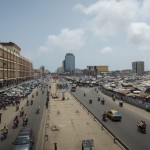
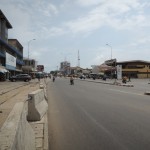
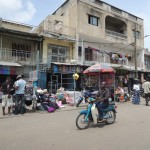
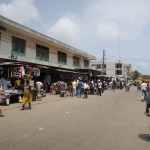
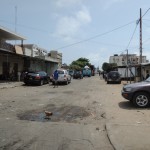
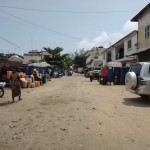
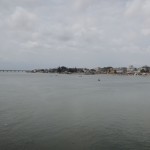
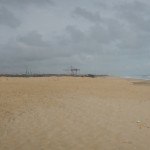
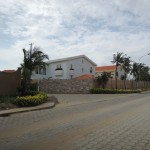
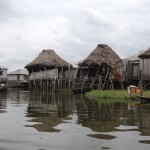
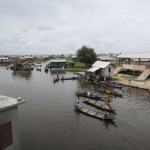
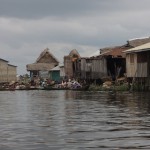
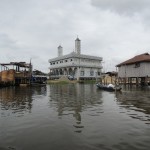
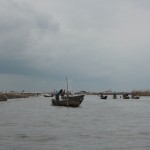
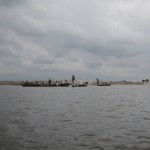
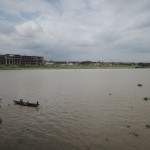
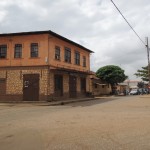
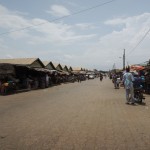
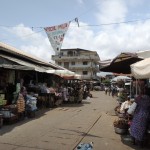
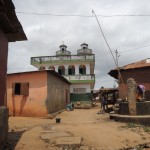
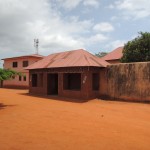
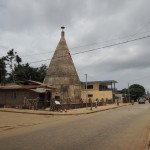
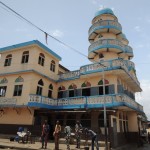
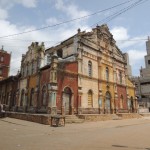
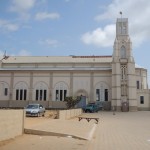
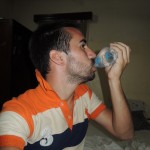
… and the list growths longer and longer …
C’est très bien que la messe t’ai plu
je suis contente aussi que la messe t’ai plu!
C’st pas trop dur d’être tout seul,?
tu vas être trop décalé au mariage!
A SAMEDI